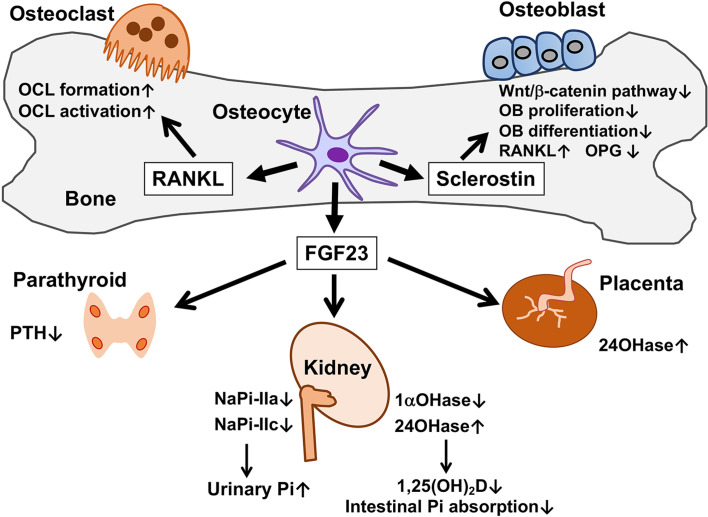Fig. 1.
Paracrine and endocrine functions of osteocytes. Osteocytes produce paracrine factors, sclerostin and receptor activator of NF-κB ligand (RANKL). Sclerostin produced by osteocytes inhibits Wnt/β-catenin signaling in osteoblasts (OB) in a paracrine manner, leading to the suppression of their proliferation and differentiation, the up-regulation of RANKL and the down-regulation of osteoprotegerin (OPG). Although RANKL is expressed in osteoblasts as well as osteocytes, RANKL derived from osteocytes plays a major role in the formation and activation of osteoclasts (OCL) in postnatal life. FGF23 secreted by osteocytes exerts its effects on distant targets in an endocrine manner. In the kidneys, FGF23 suppresses the expression of NaPi-IIa and NaPi-IIc to increase Pi excretion. Moreover, FGF23 reduces the expression of 25-hydroxyvitamin D-1α-hydroxylase (1αOHase) and induces that of 25-hydroxyvitamin D-24-hydroxylase (24OHase). The resultant decrease in serum 1,25(OH)2D level leads to the reduction in the intestinal Pi absorption. Animal studies have suggested that FGF23 also suppresses the secretion of PTH in the parathyroid glands and induces the expression of 24OHase in the placenta.

